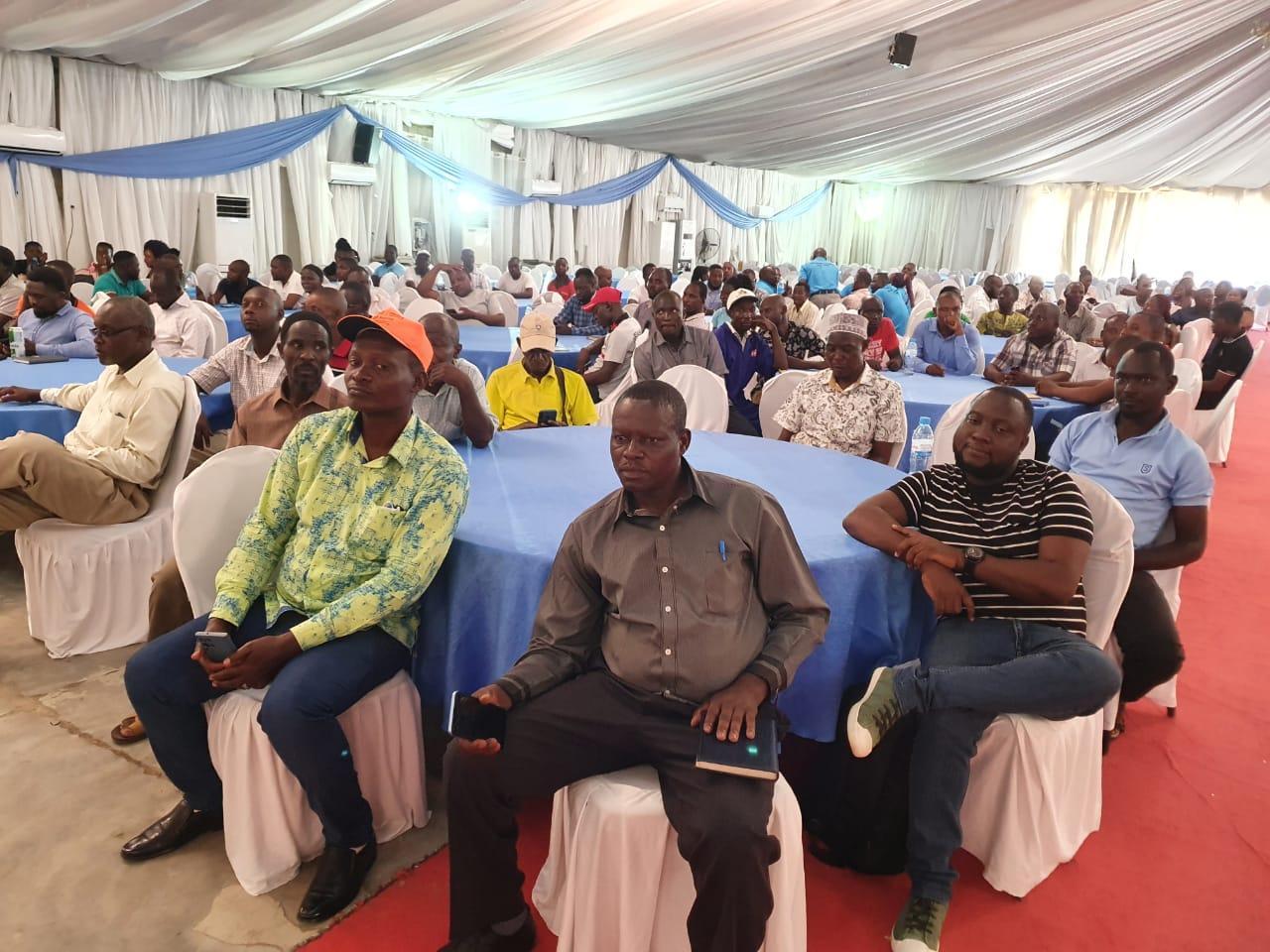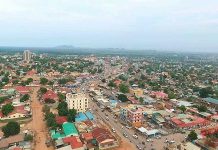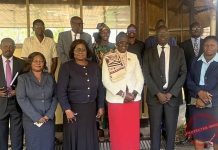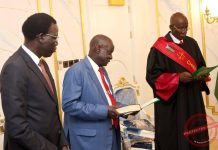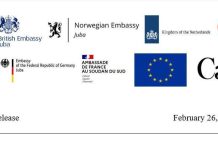Sheila Ponnie
Africa-Press – South-Sudan. Ugandan traders have urged the government of South Sudan to fully ratify the East African Common Market protocol, saying that failure to do so exposes them to extortion by some South Sudanese immigration officers.
The East African Common Market Protocol provides for the free movement of with valid travel documents within the East African Community.
But at a meeting held Friday last week, the traders lamented that lack of ratification has opened doors for extortion at the border and harassment of Ugandans within South Sudan.
The Secretary-General of the Ugandan business community in South Sudan, Philemon Bwango, raised the concerns that most Ugandans are facing bureaucratic processes and multiple un-receipted immigration charges at the border whenever they travel to South Sudan. This is against the backdrop of the 2022 visa waiver between the two countries.
“The community is deeply concerned with such exorbitant charges and fees that are collected from our people and the continued arrest and detaining of opposite gender in one cell, torture, extortion and harassments of Ugandans due to immigration issues yet this is not the case to the South Sudanese staying and leaving in Uganda,” Bwango said.
The Ugandan community listed a number of payments that a Ugandan would be required to pay at the border when coming to South Sudan. They allege in the document that one is required to pay at most SSP2,000 at the Nimule Border Bridge, SSP1,000 for temperature measurement, SSP3,000 for stamp duty, SSP5,000 for finger scanning, SSP3,000 for Gate pass at the Mountain, SSP15,000 in Nisitu and another SSP5,000 at Sherikat bus terminal.
When travelling back to Uganda, the foreign nationals have to part with SSP5,000-SSP15,000 in Nisitu and SSP20,000 for exit stamp. According to the community, staying in South Sudan attracts further charges which make a mockery of a visa waiver agreement. They stated that this comes with payments such as SSP17,000 for Allien Screening, SSP18,000 for Allien registration and another fee, SSP8,000 termed as for “Damaga.”
Joining the EAC
The group is now urging that South Sudan’s government should adopt and respect the regional bloc’s free movement protocol.
“We appeal to the concerned immigration authorise of South Sudan to respect the EAC Common market protocol Part D stop arresting and charging Ugandans exorbitant fees and harmonise the immigration laws to benefit the two countries,” Bwango said.
One of the traders, Musene Andrew, said South Sudan needs to harmonise its payment so that it can be done in wholesome to make compliance easier.
“Our request is for a single registration process, so that once the registration is complete, there should be no arrests or detentions,” Andrew said
He said that South Sudanese who travel to Uganda only need to register once at Elegu border point, and no money or documents are required, arguing the same should be applied in South Sudan.
The Director-General, the Department of Civil Registry, Nationality, Passport, and Immigration, Gen Atem Marol Biar, blamed some traders for being easily bribing some officials making them to resort to extortion.
“I will try and talk to the officers and even those in Nimule so that they keep away from all these collections of money,” he said as he assured that the country is committed to respecting visa-free deal.
Uganda’s Ambassador to South Sudan, Brigadier General Ronnie Balya, called for the standardisation of border issues.
“We want uniformity now so that people stop touching travellers,” he said.
“South Sudan is your home as he has assured you (Gen Atem Marol Biar) and Uganda is a home to South Sudanese, we have thousands of South Sudanese studying there, it is their home and that is because we believe Africa is our home No African should fight to find where to stay,” he said.
He added the embassy would make regular visits to all prisons in the country in order to bail out those who were imprisoned.
South Sudan joined the East African Community in 2016, reaping the benefits of the Customs Union on customs policy and administration, as well as the free movement of employees within the EAC.
Source: The City Review South Sudan
For More News And Analysis About South-Sudan Follow Africa-Press

